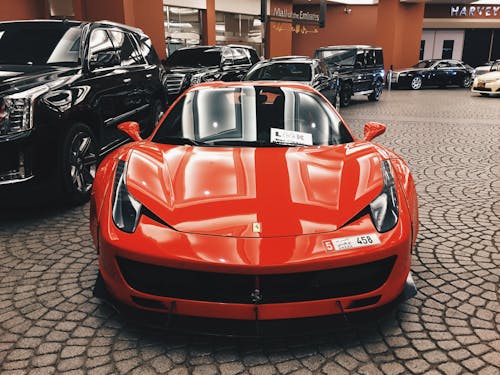The Evolution of Sports Cars: From Classics to Future Innovations
The journey of sports cars has been a fascinating evolution, highlighting technological advancements and cultural shifts. This article examines the transition from classic models to the future of automotive design, emphasizing performance and sustainability. Join us in exploring how sports cars have transformed over the decades and what lies ahead!
A Historical Perspective
The history of sports cars is rich with innovation and passion, beginning in the early 20th century. Early models prioritized speed and aesthetics, setting the stage for future designs. As technology evolved, so did the sports car, with engineers and designers collaborating to enhance performance. Classic sports cars evoke nostalgia, yet they continue to inspire modern manufacturers. Iconic brands like Ferrari and Porsche exemplify how heritage influences contemporary models. Each evolution reflects not only technological progress but also changing consumer desires. Sports cars have always been more than vehicles; they symbolize aspiration and achievement across cultures.
Modern Day Revolution
Today’s sports cars are a blend of luxury, performance, and cutting-edge technology. Engine advancements have produced vehicles that achieve unprecedented speeds, with many models featuring turbocharged or hybrid engines. The shift towards electric power has raised questions about the future of performance, but manufacturers are rising to the challenge. Innovative designs that incorporate aerodynamics and lightweight materials have reshaped the aesthetics and functionality of sports cars. Additionally, technology plays a significant role in enhancing driving experiences, with features like adaptive cruise control and advanced infotainment systems becoming standard. Even in the age of connectivity, sports cars maintain an aura of exclusivity and thrill that continues to attract enthusiasts.
Sustainability in Sports Cars
As concerns about the environment grow, the sports car industry is embracing sustainability. Many brands are now producing hybrid and electric sports cars that align with eco-friendly practices. This evolution does not compromise performance; rather, it redefines what it means to be a sports car. Ingenious engineering allows for a harmonious balance between thrilling drives and reduced emissions. The market for electric sports cars is expanding, proving that speed and sustainability can coexist. This shift represents a cultural transformation, as consumers increasingly seek vehicles that reflect their values. In the long run, embracing sustainability will be essential for the sports car sector’s survival.
The Cultural Impact of Sports Cars
Sports cars hold a unique position in cultural contexts, influencing fashion, music, and lifestyle. They are often seen as status symbols, and owning one brings a certain prestige. Films and media glorify these vehicles, shaping public perception and desire. The community around sports cars fosters camaraderie among enthusiasts, who share a passion for high-performance machines. Events such as racing competitions and car shows further promote the culture surrounding sports cars. This cultural significance elevates sports cars beyond transportation, making them integral to identity and expression. Additionally, collaborations with luxury brands highlight the interplay between sports cars and lifestyle products, enhancing their allure.
Future Trends in Sports Cars
As we look to the future, sports cars are poised for significant change. The integration of smart technology will transform user experiences, offering enhanced connectivity and customization. Manufacturers are exploring autonomous driving capabilities, which could redefine what it means to drive a sports car. Furthermore, sustainability will dominate discussions around design and manufacturing processes. The challenge will be maintaining the thrill of driving while incorporating these advancements. Sports cars must evolve without losing the essence that defines them—excitement and passion. Consequently, the future of sports cars promises to be as dynamic and thrilling as their storied past.
Conclusion: The Legacy of Sports Cars
In conclusion, sports cars have undergone incredible transformations, reflecting shifts in technology, culture, and consumer behavior. From classic models that laid the foundation to futuristic designs that challenge norms, the evolution of sports cars is a compelling narrative. Their impact extends beyond performance, shaping identities and lifestyles globally. As we embrace the future, sports cars will continue to inspire and captivate, bridging the gap between tradition and innovation.
